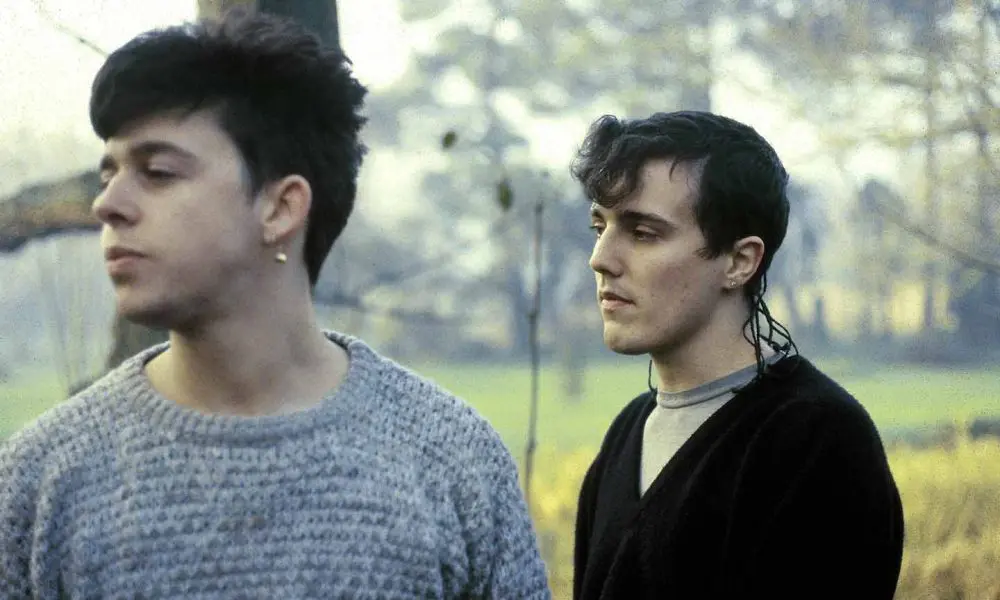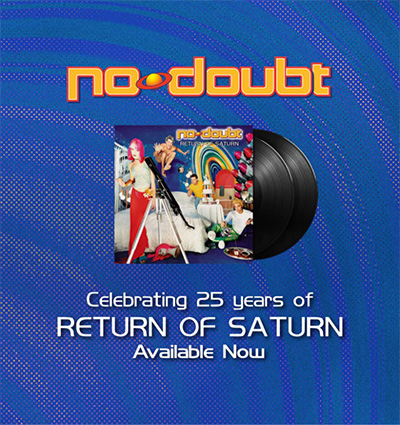Best Tears For Fears Songs: 20 Cathartic Pop Classics
Their finest are intelligent and introspective, yet blessed with arena-sized hooks and universal appeal.

Intelligent and introspective, yet blessed with the ability to write arena-sized songs with a universal appeal, Tears For Fears have been putting their stamp on pop music of quality and distinction for decades.
During that time, Roland Orzabal and Curt Smith have achieved things most bands can only dream of. They hit the ground running with UK chart-topping debut, The Hurting in 1983 and jostled for position among the world’s biggest bands when their second, 1985’s Songs from the Big Chair, sold over 8 million copies and turned them into superstars. Yet success came at a price – the duo split acrimoniously after their third album, 1989’s The Seeds Of Love, with Orzabal issuing two Tears For Fears albums, Elemental and Raoul And The Kings Of Spain under his own steam during the 1990s.
Thankfully, the pair reunited for 2004’s fittingly-titled Everybody Loves A Happy Ending and made a triumphant comeback with 2022’s The Tipping Point: a return to form which took the group to the top of the Billboard Albums Chart.
Listen to Tears For Fears’ best songs here.
Teenage angst
(Suffer the Children; Start of the Breakdown; Mad World; I Believe; Shout)
Hailing from Bath, just a few miles from Bristol in the south-west of England, bassist/vocalist Curt Smith started his career in a Madness-influenced ska-pop band named Graduate. His friend, guitarist, vocalist and budding songwriter Roland Orzabal initially leaned towards heavy rock outfits such as Led Zeppelin. But after the boys discovered a shared love of the UK’s leading post-punk acts, they set out to make music together.
“I feel we were given a cultural green light by Joy Division and Echo & The Bunnymen, to wear black and be dour and melancholic,” Orzabal told Record Collector in 2014. The Cure’s Seventeen Seconds and Faith – I heard all those albums, they were playing in clubs and bars, even in Bath. Obviously, [Joy Division’s] “Love Will Tear Us Apart” was a hit and not just an underground thing.”
Orzabal and Smith formed Tears For Fears in 1981 and “Suffer The Children,” one of the first two songs they demoed, landed them a deal with Phonogram. Produced by David Lord (Peter Gabriel, XTC) and recorded at his Crescent Studio in Bath, the song was released as the band’s first single and offered the duo a chance to experiment with the synths, sequencers, and drum machines they initially leaned heavily upon.
Later described by Record Collector as “like a pop version of Joy Division’s Unknown Pleasures,” Tears For Fears’ debut album, The Hurting, followed “Suffer The Children” in focusing on themes of child abuse, psychological trauma, and depression, though they usually paired their lyrics to winning, electronic-tinged melodies, ensuring that songs such as “Start Of The Breakdown” and “Mad World” went down easy. The evocative “Mad World” perfectly reflected teenage angst and confusion, and it rewarded Tears For Fears with their breakthrough hit when it climbed to No. 3 in the UK.
Thanks to “Mad World,” The Hurting took Tears For Fears out of their bedrooms and hurled them onto the international stage. However, they weren’t comfortable in the glare of the spotlight. Like John Lennon and Mick Jagger before them, Orzabal and Smith were influenced by US psychologist Arthur Janov’s book The Primal Scream, based on the idea of treating mental illness by repeatedly descending into, feeling, and experiencing long-repressed childhood pain. This philosophy inspired a new batch of songs which provided personal catharsis, but also significantly furthered their career. Orzabal’s beautiful ballad, “I Believe” was directly influenced by the contents of The Primal Scream, as was the band’s global breakthrough hit, the anthemic “Shout,” which topped the Billboard Hot 100 in the late summer of 1985.
Socio-political intrigue
(Everybody Wants to Rule the World; Listen; Sowing the Seeds of Love; No Small Thing; My Demons)
In addition to turning Orzabal and Smith into household names, “Shout” chimed with some of the most potent protest songs of the day such as Frankie Goes To Hollywood’s “Two Tribes” and The Style Council’s “Walls Come Tumbling Down.” Its success encouraged them to write more songs with socio-political content for Songs From The Big Chair. These included the enigmatic Cold War commentary “Listen” and the song that’s since become Tears For Fears’ signature hit, “Everybody Wants To Rule The World.” Introduced by Orzabal’s cyclical guitar figure and sung with feeling by Smith, “Everybody Wants To Rule The World” topped the US charts and won a BRIT award – and revealed you could credibly mix pop with politics after all.
Tears For Fears pulled off a similar trick with 1989’s “Sowing The Seeds Of Love,” which married a glorious widescreen melody with an angry lyric (“Politician granny with your high ideals/Have you no idea how the majority feels?”) expressing dissatisfaction about Margaret Thatcher’s re-election for a third term as the UK’s prime minister.
The band have continued to mix the personal with the political ever since, with songs from The Tipping Point, such as the powerful, folk-flavored “No Small Thing” confronting issues such as the erosion of personal freedoms. Arguably even more potent is the same record’s brooding “My Demons”: a commentary on surveillance, CCTV, and “the satellites in space that spy on us with charm and grace.”
The feminine perspective
(Mother’s Talk; Woman in Chains; Break the Man; Please Be Happy; End of Night)
In addition to boasting songs of a socio-political bent, Songs From The Big Chair also included the dramatic “Mother’s Talk,” one of a group of Tears For Fears songs to adopt a feminist stance. This dramatic song juxtaposed themes of motherhood and the threat of nuclear war, yet it was still catchy enough to score Top 30 success in the US and UK.
Notably more explicit was one of The Seeds Of Love’s key tracks, “Woman In Chains.” Penned by Roland Orzabal, this stately ballad celebrates the idea of how the world’s matriarchal societies tend to be more harmonious (“They have the woman at the center and these societies are a lot less violent, a lot less greedy, and there’s generally less animosity,” Orzabal said in a Melody Maker interview). Orzabal sang it as an impassioned duet with guest vocalist and pianist Oleta Adams, a performer who later enjoyed a successful solo career in her own right.
Despite its quality, “Woman in Chains” only troubled the lower reaches of the US Top 40, but it’s now rightly regarded as one of Tears For Fears’ signature songs. In future, The Tipping Point’s “Break the Man” may well be regarded in a similar light as it’s another potent pro-feminist outing, this time co-written by Curt Smith and guitarist Charlton Pettus. Though one of The Tipping Point’s most sparkling pop songs, “Break the Man” includes a thoughtful lyric about righting the gender imbalance in the modern world (“She’s the mother who turns back father time”).
It’s one of several great songs from the band’s 2022 album which considers life, love and loss from a feminine perspective. To this end, “End Of Night” is a powerful exhortation of a woman’s wisdom (“She showed me the world within and told me no need to worry about the world”), while the poignant “Please Be Happy” was all too personal for Orzabal as it reflected on the alcohol-related dementia which killed his wife, Caroline, in 2017.
Sonic innovators
(Change; Head Over Heels; Advice for the Young at Heart; Raoul & The Kings of Spain; Rivers of Mercy)
Tim Palmer, who produced Tears For Fears’ fourth album, Elemental, once said of Roland Orzabal that “he likes to keep going ‘til it’s perfect” and it’s true that most TFF records are the result of intense amounts of studio time. However, the band’s desire to innovate has always kept pace with their quest for pop perfection.
Inspired by the first wave of British synth-pop acts such as The Human League, Soft Cell, and OMD during their early days, the band were quick to incorporate synths, sequencers, and drum machines. As a result, their debut album, The Hurting, sounded bang on trend in 1983, with a song such as the urgent “Change” among the tracks reflecting the duo’s innate ability to blend introspection with bracing, radio-friendly tunes.
After The Hurting’s platinum yield, Tears For Fears could easily have served up more of the same, but they quickly moved on. Having embarked on a lengthy bout of touring to support their debut, they made the notably more outward-looking Songs For The Big Chair, adding guitars and Manny Elias’ drums to the mix and making a bigger, more organic-sounding record which included two huge hits (“Shout,” “Everybody Wants To Rule The World”) but is perhaps best exemplified by the lush, widescreen pop of “Head Over Heels.”
Tears For Fears were arguably one of the world’s biggest bands when they began work on their third album, The Seeds Of Love. The sessions were protracted for this big budget title and four years elapsed before it was released. Roland Orzabal was keen to ditch some of the technology that facilitated the band in their early days, but while the album was influenced by blues, jazz, and The Beatles’ psychedelic period, it was still epic in scope, with the soulful, Curt Smith-sung “Advice For The Young At Heart” showing that the band continued to progress apace.
Orzabal and Smith hit their lowest ebb during the 1990s, with the pair (temporarily, as it turned out) splitting in 1991. Orzabal sailed the ship on his own for most of the decade, releasing two underrated albums, Elemental and Raoul & The Kings Of Spain, while again pursuing a fresh sonic agenda. Both titles are worthy of reappraisal, with Orzabal delving into his own Spanish heritage on the unsung Raoul & The Kings Of Spain.
Since the new millennium, though, Tears For Fears have returned to doing what they do best. Their reunion was brokered by 2004’s Everybody Loves A Happy Ending and the band ended another lengthy absence with 2022’s excellent The Tipping Point. The latter is filled wall-to-wall with excellent tracks, but the dreamy, multi-layered “Rivers Of Mercy” is particularly special and its quality suggests that – despite their rich history – Tears For Fears are still setting the bar high for releases yet to come.
Think we missed one of Tears For Fears’ best songs? Let us know in the comments below.













Leslie
April 29, 2023 at 2:25 am
“ Badman’s Song”